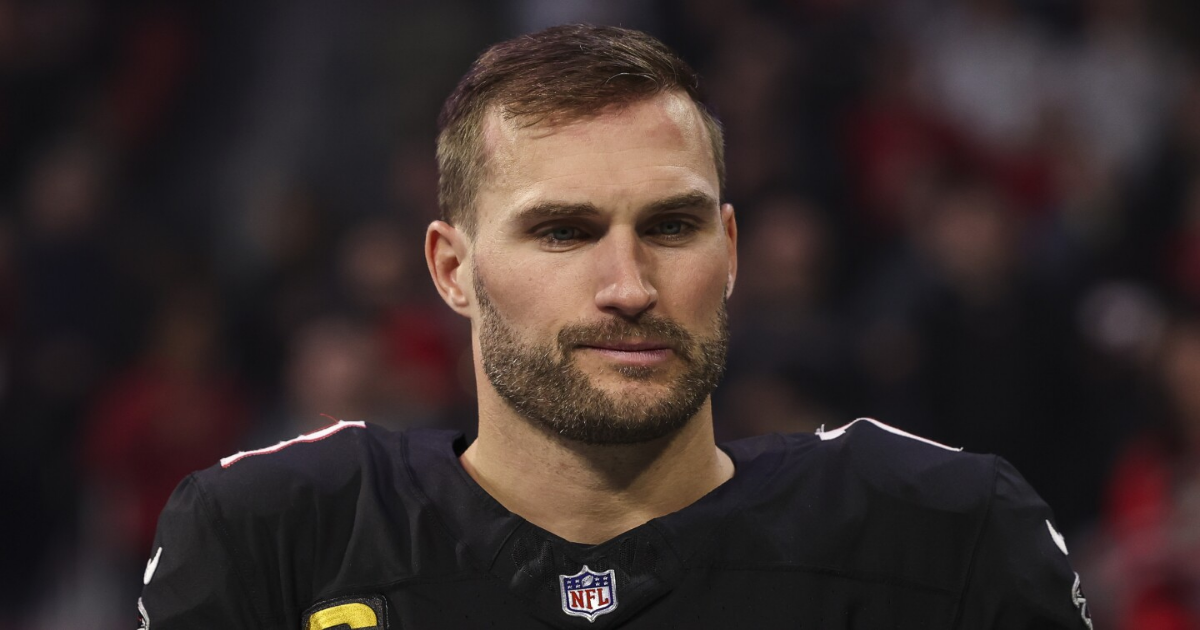As free agency approached, Falcons quarterback Kirk Cousins tried to become one. But the Falcons declined to release him.
By keeping Cousins, his remaining guarantees moved from $27.5 million to $37.5 million, thanks to a $10 million roster bonus due in March 2026.
Outside Atlanta, the game of quarterback musical chairs commenced. Seats were filled. Starting jobs, even if in some spots tentative, were claimed. And Cousins, leery about a repeat of last year’s late-April surprise, opted to wait until after the draft to entertain whether to waive his no-trade clause.
With the draft looming, Adam Schefter of ESPN.com recently reported that the Falcons want Cousins’s new team (if there’s a trade) to pick up $20 million of his remaining guarantees. Implicit in that assertion is that the Falcons would remain on the hook for $17.5 million.
At first blush, it’s a surprising revelation. With the top of the market currently at $60 million in new-money APY for a quarterback, $27.5 million is a relative bargain. With few starting jobs vacant — and with most budgets dented by contracts paid out once the frenzy began — the market has largely dried up.
It’s dried up to the point that, as Schefter puts it, there’s a feeling around the league that a team like the Vikings or Steelers would be willing to pay only $10 million of Cousins’s remaining guarantees.
That number seems to be more than coincidental. If Aaron Rodgers is willing (as he claims he is) to play for the Steelers or Vikings for only $10 million, why should either team offer more than that for Cousins?
There’s another important factor at play. If a team like the Steelers or Vikings can get Cousins for only $10 million, his spot at the top of the depth chart would become more tenuous. (He’s far more likely to start in Pittsburgh than in Minnesota, unless J.J. McCarthy gets injured or simply doesn’t have “it”.) If Cousins would be waiving his no-trade clause to potentially become a backup in a new city, why not stay in Atlanta (close to his wife’s family) and serve as the backup to Penix?
At this point, it seems like the best move for the Falcons and for Cousins will be to wait. If there’s a season-ending injury to a starter before the trade deadline, a new team might be willing to absorb much more of the remaining contract — and Cousins might be more inclined to waive the no-trade clause.
There’s no real downside to keeping Cousins around. It’s not as if he’s going to be doing shirtless driveway situps or conducting “next question” press conferences on his front lawn. He’ll be a good soldier. He’ll keep his feelings close to the vest. He’ll do his job. And he’ll be ready to play if he’s needed.
Will he be happy about the situation? By the end of the regular season, he will have made $90 million for two years in Atlanta. While money can’t buy happiness, it can go a long way toward removing the stick from one’s butt.
So unless Cousins has a clear shot at starting, why uproot his life to potentially be No. 2 in a new town?
Of course, the Falcons could decide that they don’t want Cousins on the depth chart at all, in the event Penix struggles and portions of the locker room start murmuring for the other guy. If the Falcons cut him, he’ll be free to go wherever, for whatever he can get. (And if no one will be paying more than $27.5 million, Cousins possibly would take $1.255 million and stick the Falcons with the balance.)
At this point, the Falcons have an easy way out — especially since Cousins holds full and final say over whether a trade will happen. In time, a solution could emerge. At a time when there isn’t an obvious one, patience seems like the smartest play.
